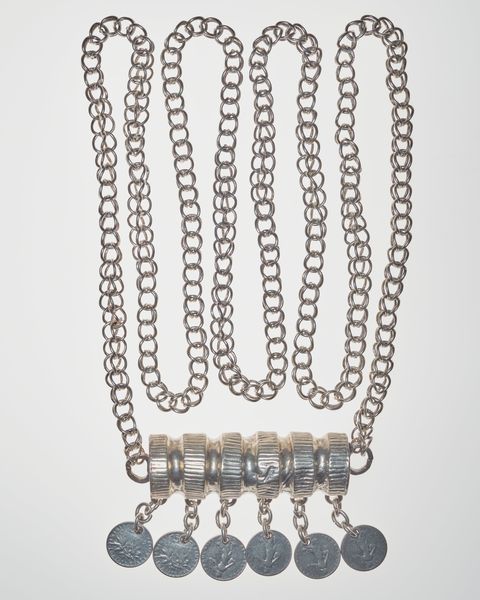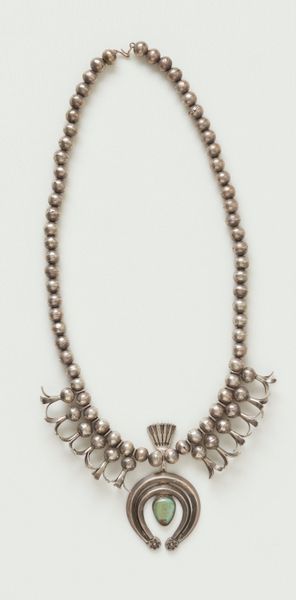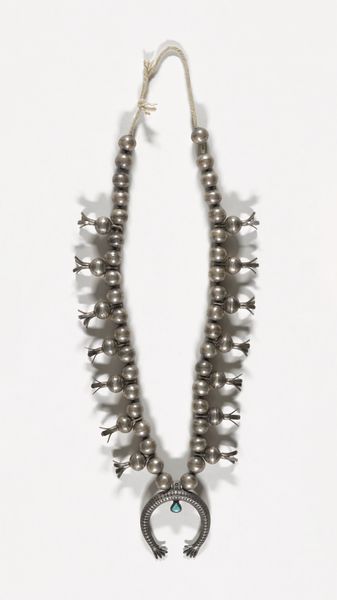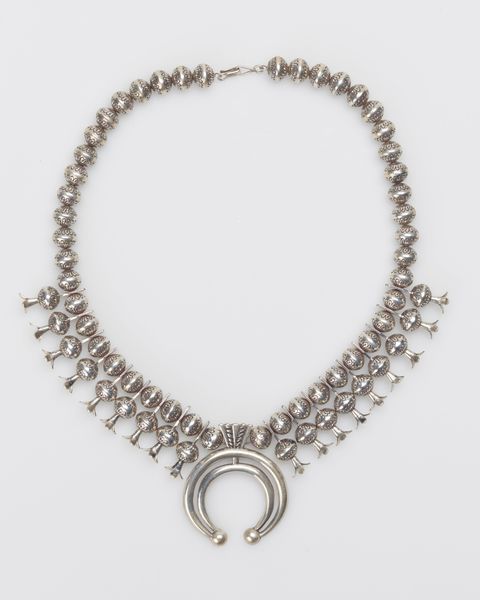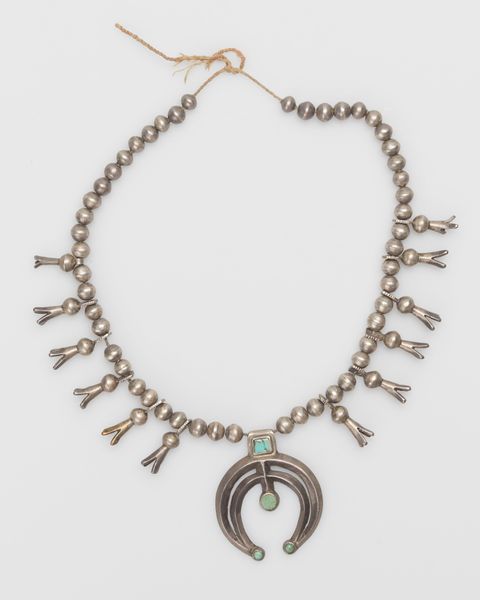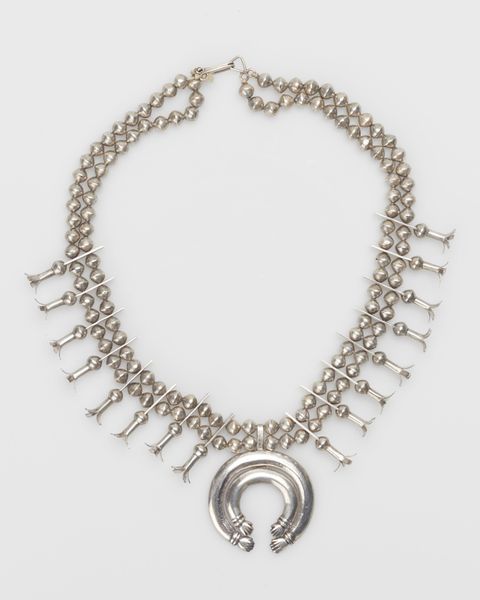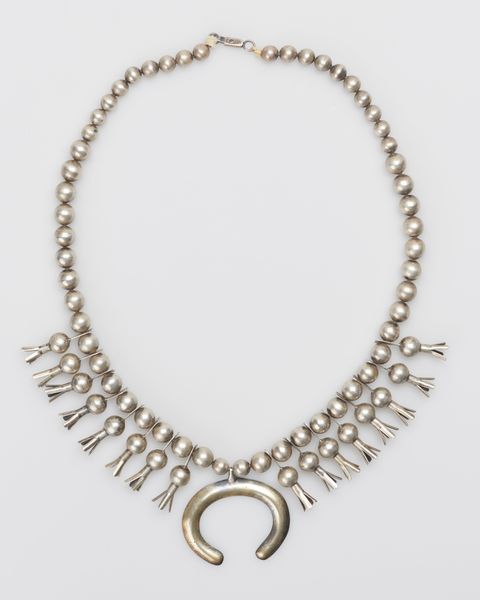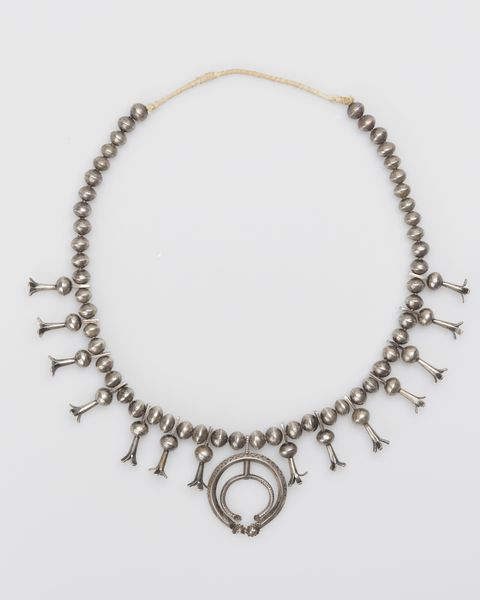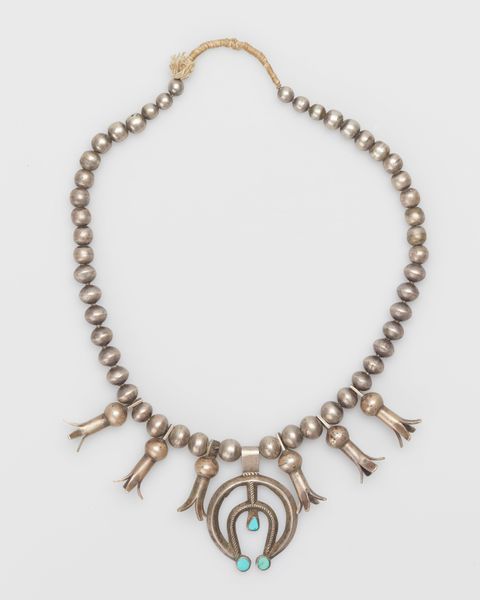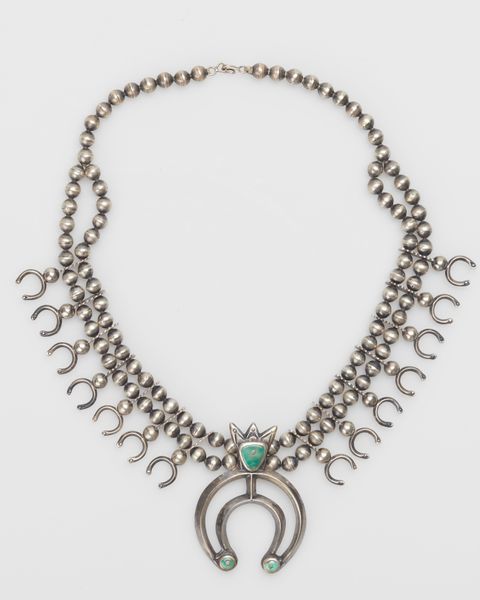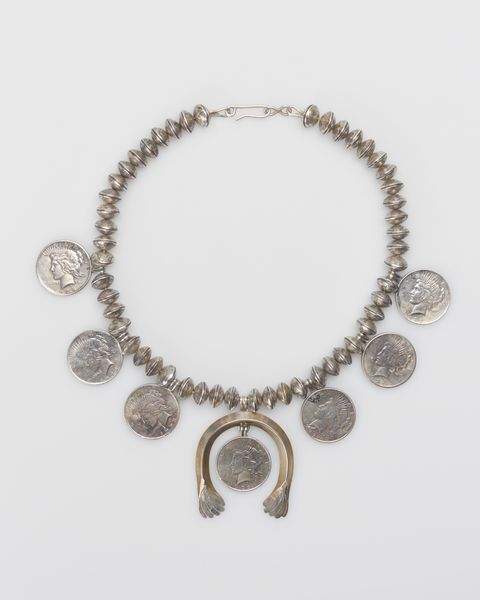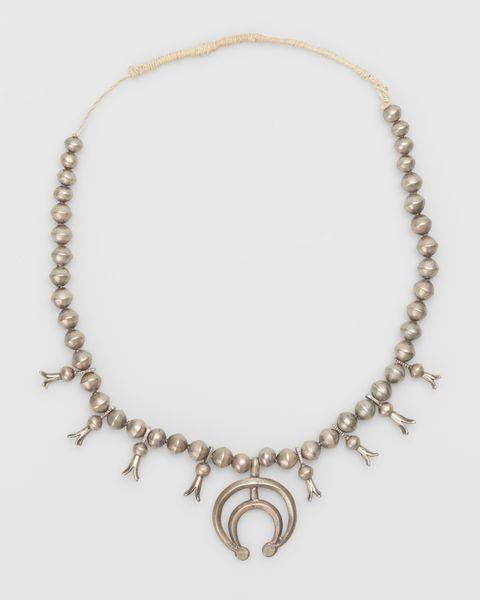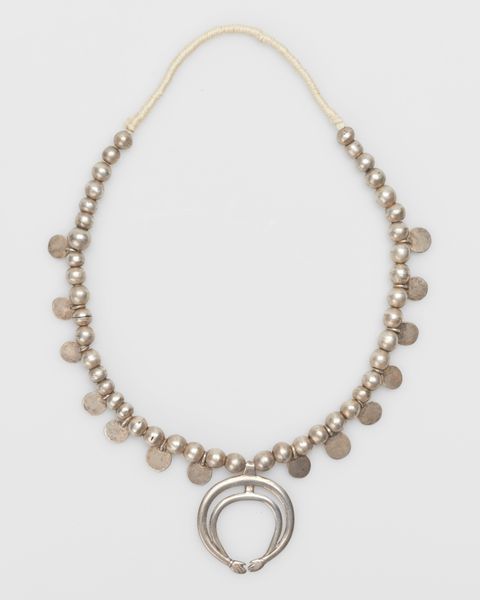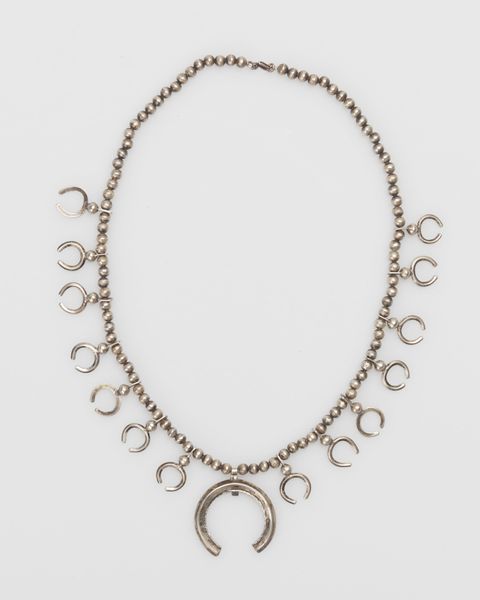
Necklace with cylinderical ornament and coin pendants c. late 19th century
0:00
0:00
silver, metal, photography
#
silver
#
metal
#
photography
#
historical fashion
Dimensions: 5/8 × 6 1/8 × 2 3/8 in. (1.59 × 15.56 × 6.03 cm) (ornament only)
Copyright: Public Domain
This necklace, adorned with a cylindrical ornament and coin pendants, was created by the Fon people. As you look closely, consider the weight of history embedded in each element. The Fon, originating from present-day Benin, have a rich artistic tradition deeply intertwined with their social structure and spiritual beliefs. Metalwork, like this necklace, often signified status and identity within the community. The use of coins is particularly evocative, hinting at trade, economic power, and perhaps the complex colonial history that shaped West Africa. These coins, once currency, are now transformed into adornment, a potent symbol of cultural endurance and adaptation. Reflect on the wearer of this necklace – what did it mean to them? How did it feel against their skin, and what stories did it tell about their life and lineage? The necklace transcends mere decoration; it embodies the intersection of personal narrative and collective memory.
Comments
minneapolisinstituteofart about 2 years ago
⋮
More than one hundred years ago, the elite of the Danhomé Kingdom in West Africa would have worn these silver ornaments to adorn themselves and show off their wealth, and also to protect themselves from harm and evil. Fashioned by jewelers from imported silver coins, the ornaments were embellished with tiny sculptures that refer to past kings, heroic wars, and the Vodun religion. The coins attached to the ornaments date from between 1873 and 1910, bridging the last decades of the independent Kingdom and the first 15 years of French colonial rule.
Join the conversation
Join millions of artists and users on Artera today and experience the ultimate creative platform.
